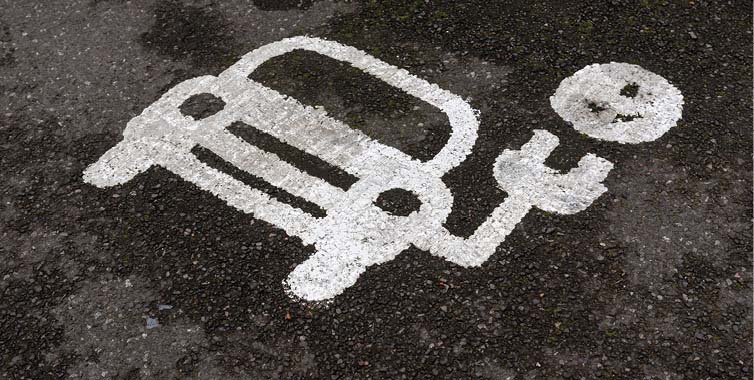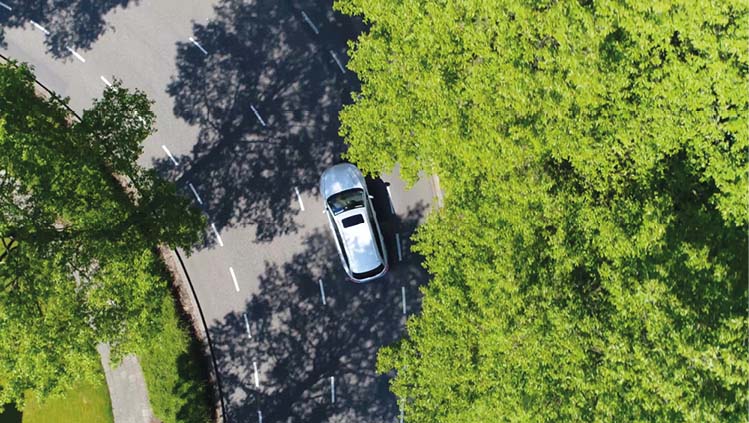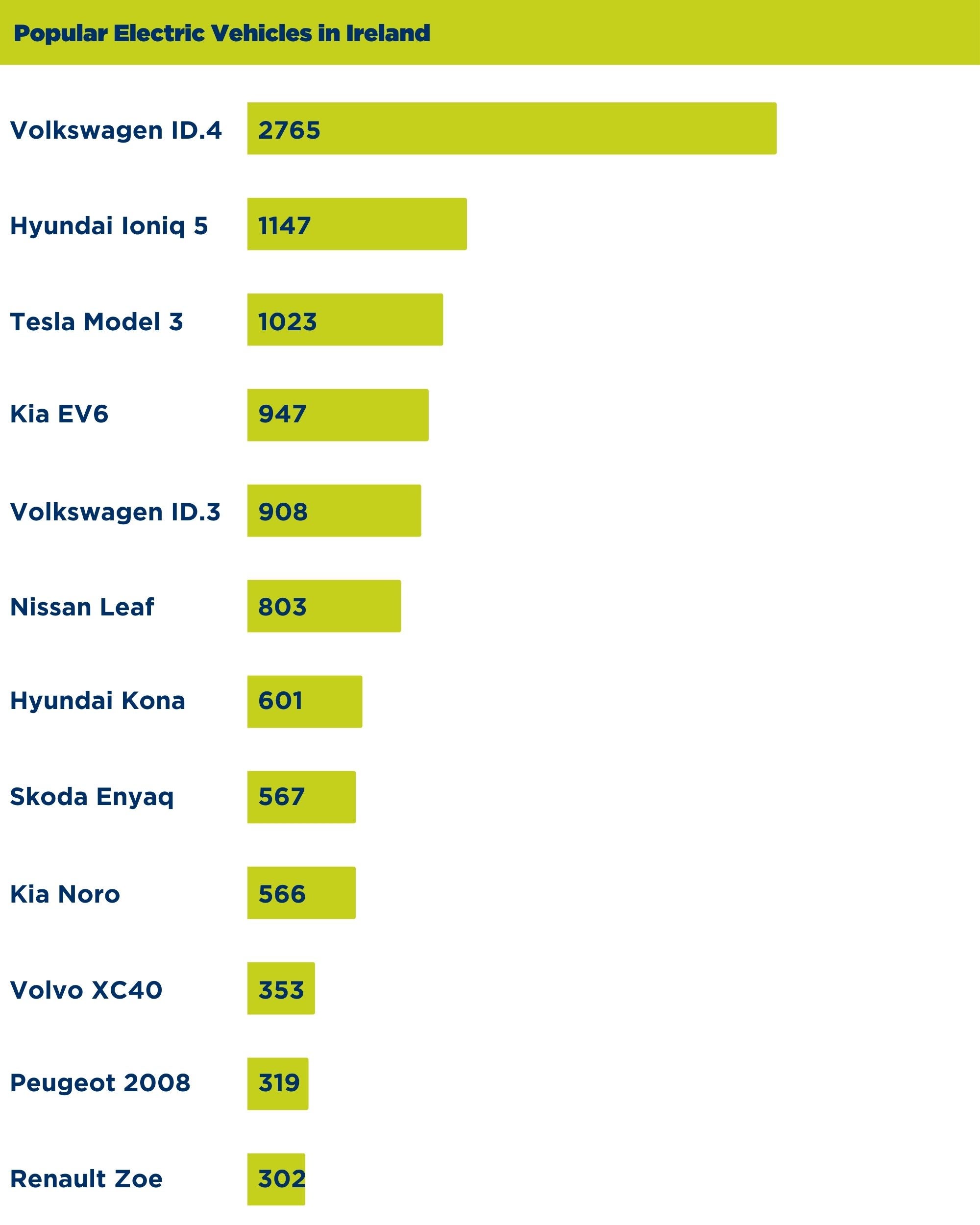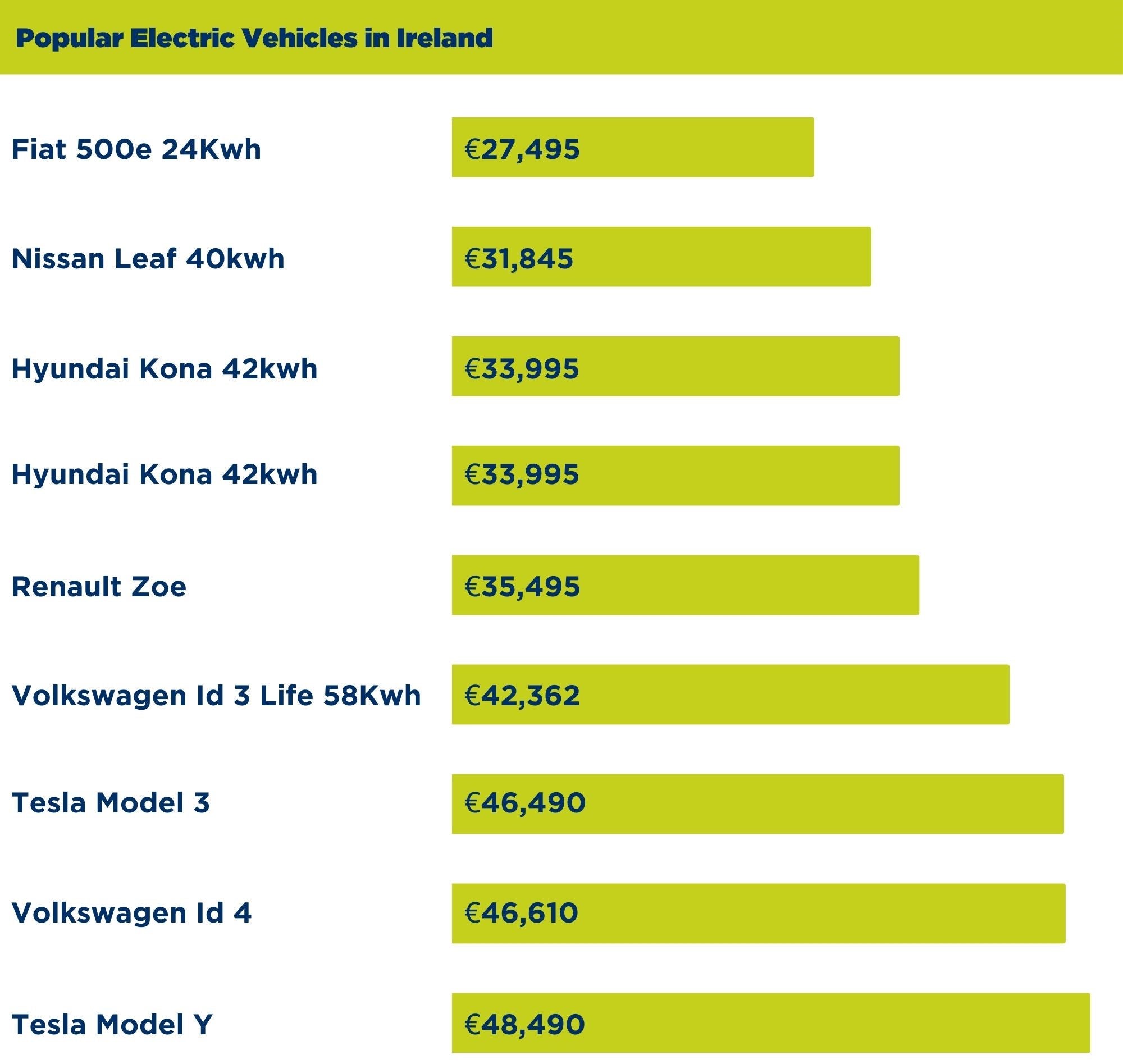Our guide to EV Chargers in Ireland
Updated February 2024

In this article we delve into the evolution of EV chargers in Ireland, their role in transforming the transportation landscape, and the remarkable progress towards a greener future.
Table of contents
Electric vehicle (EV) chargers on the Irish market
Electricity continues to evolve as a low-carbon fuel of choice in Ireland with the continued adoption of renewable energy resources. With transport accounting for about a third of Ireland's energy needs and energy-related carbon dioxide emissions, the electrification of transport has proven to be one of the most effective and efficient ways of reducing greenhouse gases in this country.
The use of electric vehicles (EVs) provides a sustainable transport solution that doesn't rely on fossil fuels, such as petrol and diesel. To meet national decarbonisation targets, the Government has continued to promote the use of electric vehicles across the country. Currently, the aim is to have about 936,000 electric vehicles in Ireland, with the sale of new fossil-powered cars ceasing by 2030.
With the increase in electric vehicles in Ireland, the main question shifts to the availability of adequate charging points to meet growing demand. An EV’s battery needs to be charged for the car to drive from A to B, meaning the battery requires a source of energy all the time for the car to function, just like other cars require petrol or diesel to run.
Essentially, if the battery is fully discharged without access to a charging point, the driver will be stuck wherever they may be, highlighting the necessity of a sufficient nationwide network of readily-accessible charging points or for EV owners to install a home charging point.
Electric vehicle charging points
An EV charging point/station is an electrical machine that supplies electricity to charge electric cars and plug-in hybrid vehicles. Some electric vehicles usually contain converters onboard that can plug into a standard electrical outlet or even high-capacity appliance outlets. Other electrical vehicles use charging stations that provide electrical conversion, monitoring, and safety functionalities.
Charging stations can support faster charging at higher voltages and currents than the residential Electrical Vehicle Supply Equipment (EVSEs). There is a growing number of people switching to BEVs and PHEVs technologies in Ireland, generating an urgent need to improve the public charging infrastructure to support the increasing number of EVs. People usually charge their cars in public, home, work, and car parking charging points.
Charging an electric vehicle at home is the most convenient option available for most electric vehicle owners. A full overnight charge can cost as low as €3 using the night rate electricity. These costs usually vary by vehicle type and your electricity supplier. The cost of charging at home is then added to your regular domestic electricity bill in the usual way. There are grant options available too, which you will find more information on below in the Government EV home charger grant section of this guide.
Vehicles usually charge in public charging points located in various locations, such as on public roads, streets, motorway service stations, shopping centres, car parks, and other public areas with chargers across Ireland. Public charging points are usually crucial for car owners when they travel long distances, where the battery is likely to drain on the way.
It is vital that Ireland has many public charging points for the increasing number of electric vehicles. This means that drivers can easily access such charging points and have their batteries charged in order to continue with their journeys.
Different EV chargers in Ireland
The increase in electric cars has created opportunities for many companies to venture into the area of installing EV charging points. These installers offer both residential as well as commercial charging points across the country.
You can use this EV Charger Locator to find your nearest charging station, or get a free quote on installation for anywhere in Ireland with our partners at Local Heroes.

Government EV home charger grant
To help support new EV owners, the SEAI offers an electric vehicle home charger grant for up to €300 towards the purchase and installation of a home charger. This amount usually covers up to around 20 per cent of the typical costs incurred during the purchase and installation of home charging points. To qualify, one must have taken full ownership of an electric vehicle from January 2018 onwards.
How to apply for home charger grant
The application for the grant can be made online. The applicant must have the following requirements:
- Have the Meter Point Reference Number (MPRN)
- Home address and Eircode
- Bank details
- Application ID for those buying new electric cars and receiving an EV grant from SEAI.
Choose a professional installer locally
It is very important to have a professional EV charging point installer to carry out your installation work. A professional installer should be a fully qualified electrician registered with Safe Electric Ireland.
Through our trusted supplier at Local Heroes, we recommend installing the Hive EV charger (EO Mini Pro 3).
Local Heroes, a Bord Gáis Energy innovation, can connect you to a vetted and trusted EV charger installer in your area.

• Get an estimate straight away
• If you’re happy with the quote, you’ll need to pay a deposit.
• Pay online, no cash required.
• All work is covered by a 12 month guarantee, backed by Bord Gáis Energy.
• The SEAI grant scheme allows you to claim €300 back on the cost of the new installed charger.
For more information, you can contact our dedicated EV support team who will offer you professional advice and guidance concerning electric vehicles, installation of both home and business EV charging points, and other related matters.
Install an EV charger
We'll connect you to a qualified EV charger installer in your area, quickly and easily through Local Heroes.
Get a free quoteDifferent types of Electric Vehicles
Electric vehicles can be plugged to charge from an off-board electric power source. They are therefore different from hybrid electric vehicles, which usually have a battery power output to supplement the internal combustion engine but cannot be plugged in.
There are two main types of EVs on the Irish market. First, Battery Electric Vehicles (BEVs) which are fully-electric ‘autonomous electric vehicles’ (AEVs) and secondly, there are Hybrid Electric Vehicles (HEVs) and the more common plug-in hybrid electric vehicles (PHEVs).
As their name suggests, battery electric vehicles are fully-electric and rely solely on the use of a battery for propulsion unlike their hybrid fuel-and-electric counterpart PHEVs, which run on electricity for shorter ranges and automatically shift to petrol when the battery runs low.
The current model BEVs have all-electric ranges of 200 to 550km, while some higher-end models such as the Tesla Model S Plaid+ can range up to 835km per the latest industry data.
When a BEV battery is empty, it can take between 1 to 8 hours to fully charge, depending on the make and model. Higher-end specs with fast chargers usually take about half an hour to restore a significant amount of energy to the battery ahead of its next journey.
Modern plug-in hybrid electric vehicles run on battery-fueled electricity for shorter ranges from 40 to 90km, then switch to an internal combustion engine that runs on fossil fuel (petrol) when the battery depletes.
This option allows a PHEV owner to use electricity when possible but still use petrol in circumstances that may require so, such as longer-distance journeys or when access to a charging terminal isn’t readily available.
Powering an electric vehicle with electricity from the grid has many benefits; this option reduces your overall car-running costs because grid electricity is cheap. You can cut down on (or eliminate) petrol consumption, which is expensive compared to electricity and in doing so, you can cut the emissions produced by conventional vehicles that run on fossil fuels, and play your part in protecting our environment in the process.
Got an electric vehicle?
We have a wide range of plans suited to your needs, from giving you a lower price for the electricity you use at night so you charge your electric car for less to helping the environment with 100% green electricity.
Popular Electric Vehicles in the Ireland
Taking a look at last year's data, from January to September 2022, 36.6% of new vehicle registrations in Ireland were for plug-in vehicles. A further 29.3% were for full electrics and 7.35% were plug-in hybrid vehicles.
Different electric vehicle companies competing within the Irish market include Ford, Volkswagen, Renault, Nissan, Tesla, Hyundai, BMW, Mitsubishi, Kia and Audi, among others.
The table below shows some of the most popular EVs in the country and their estimated numbers from January to September 2022;

Table ref: cleantechnica.com
Electric Vehicle grants
Starting from July 1 2023, a maximum grant of €3,500 is available for qualifying new privately purchased M1 (passenger car) battery electric vehicles (BEVs). Previously the maximum grant available was €5000.
Grants are not available for M1 cars with a value of less than €14,000 or more than €60,000. See below for the latest price categories and corresponding grant values.
M1 price categoryM1 price category | Grant ValueGrant Value |
M1 price category€14,000 - €15,000 | Grant Value€1,500 |
M1 price category€15,000 - €16,000 | Grant Value€2,000 |
M1 price category€16,000 - €17,000 | Grant Value€2,500 |
M1 price category€17,000 - €18,000 | Grant Value€3,000 |
M1 price category€18,000 - €60,000 | Grant Value€3,500 |
Grants are also available for new vehicles purchased for commercial purposes or by public entities. These are called N1 category vehicles and are generally small vans used for carrying goods. Their technically permissible maximum mass must not exceed 3500kg.
A maximum grant of €3,800 is available for qualifying N1S category BEVs when purchased commercially. As with M1 vehicles, grants are not available for vehicles valued at over €60,000 or less than €14,000.
N1 price categoryN1 price category | Grant ValueGrant Value |
N1 price category€14,000 - €15,000 | Grant Value€2,000 |
N1 price category€15,000 - €16,000 | Grant Value€2,500 |
N1 price category€16,000 - €17,000 | Grant Value€3,000 |
N1 price category€17,000 - €18,000 | Grant Value€3,500 |
N1 price category€18,000 - €60,000 | Grant Value€3,800 |
Note: these grants cannot be claimed on second-hand vehicles.
For more information visit seai.ie.
The price of an Electric Vehicle in Ireland
The cost of electric vehicles varies from one model to another, from one brand to another, as well as based on whether it is a BEV or PHEV. With entry-level costs north of €25,000, it’s a significant investment to consider and different electric vehicles have varying additional features and functionalities which affect their prices.
Such features include the capacity of a battery and the stipulated range of kilometres an EV can travel without requiring recharging. The table below shows some of the electric vehicles in the Irish market and their respective prices*;

*All prices are accurate as of Jan 2023 and include the reduced €3500 SEAI Grant for Private Customers & any Government VRT Relief. Source: moneyguideireland.com
Your choice of an electric vehicle will ultimately depend on a couple of key factors, such as your desired use, your budget and specs required in the respective car. With grant incentives and savings to be had as market-based competition heats up, EVs are becoming more affordable than ever.
Towards a sustainable energy future
At Bord Gáis Energy we’re imagining a better way by helping our customers make better energy choices to protect our planet and those we care about. Learn more about sustainable living through our comprehensive sustainability guides.
Solar Energy Guide
Learn how embracing solar energy can help lower carbon emissions, protect our environment and reduce your energy bills.
Heat Pump Guide
Learn all you need to know about heat pumps and find information on financial support available from the SEAI.
Smart Homes Guide
Learn all you need to know about how to make your home smarter with the latest smart home technology.